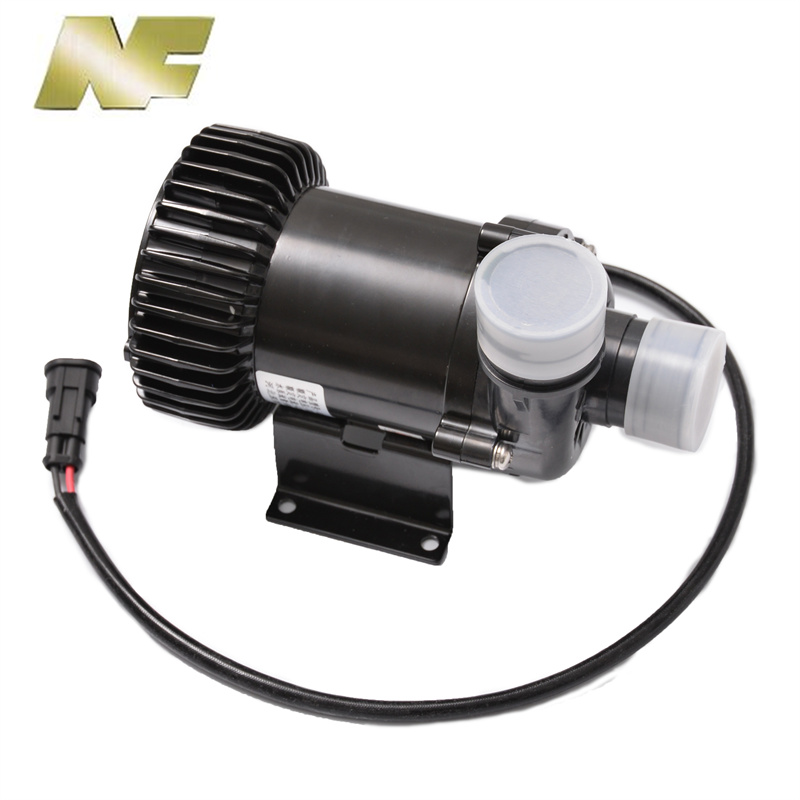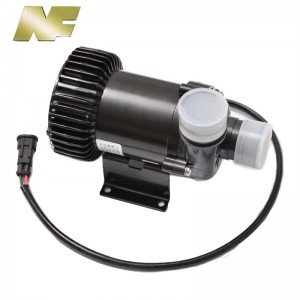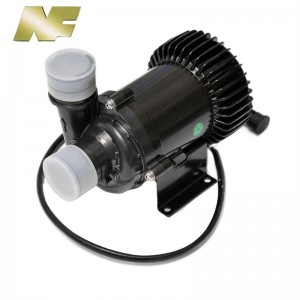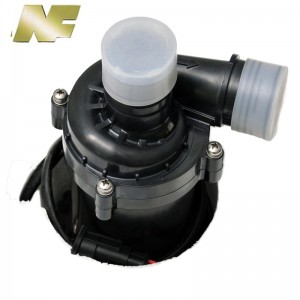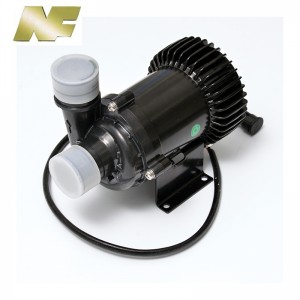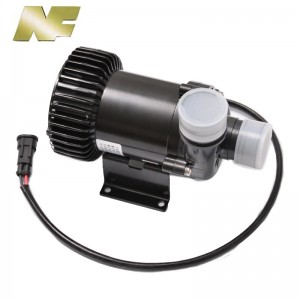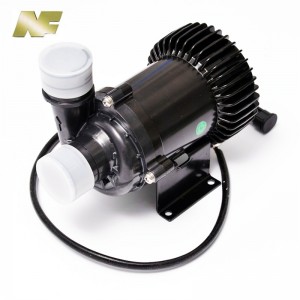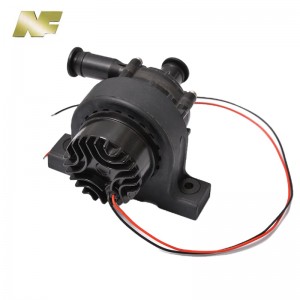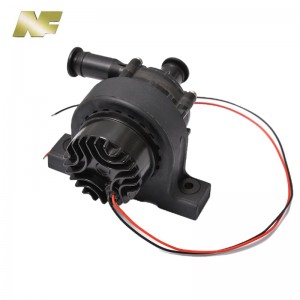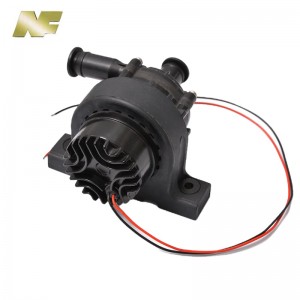NF Best Quality Auto Water Pump 24 Volt Dc For Electric Bus
Technical Parameter
|
Ambient temperature
|
-50~+125ºC
|
|
Rated Voltage
|
DC24V |
|
Voltage Range
|
DC18V~DC32V |
|
Waterproofing Grade
|
IP68 |
|
Current
|
≤10A
|
|
Noise
|
≤60dB
|
|
Flowing
|
Q≥6000L/H (when the head is 6m)
|
|
Service life
|
≥20000h
|
|
Pump life
|
≥20000 hours
|
Product Detail
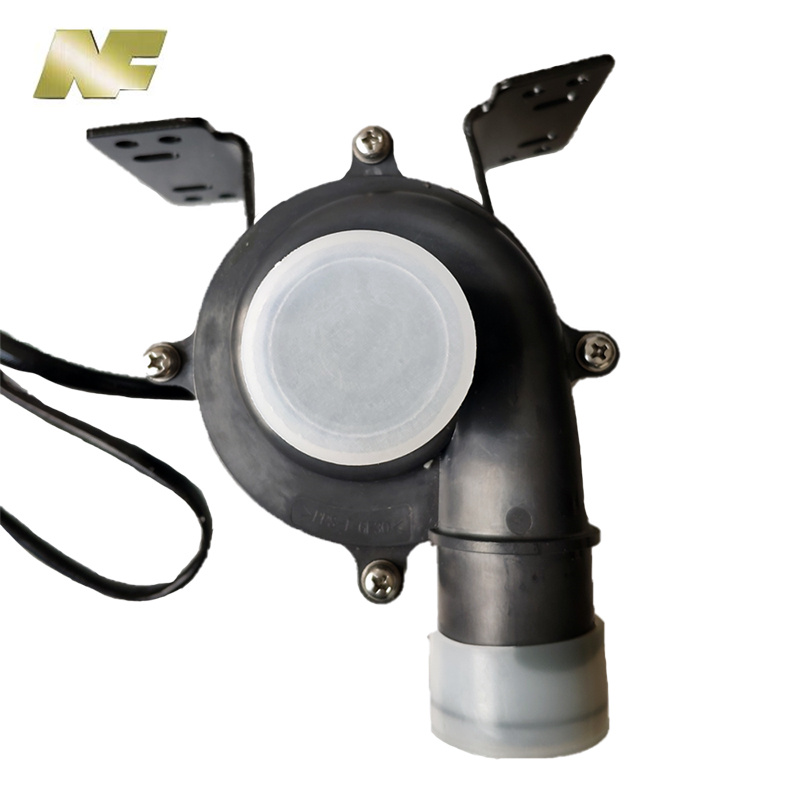
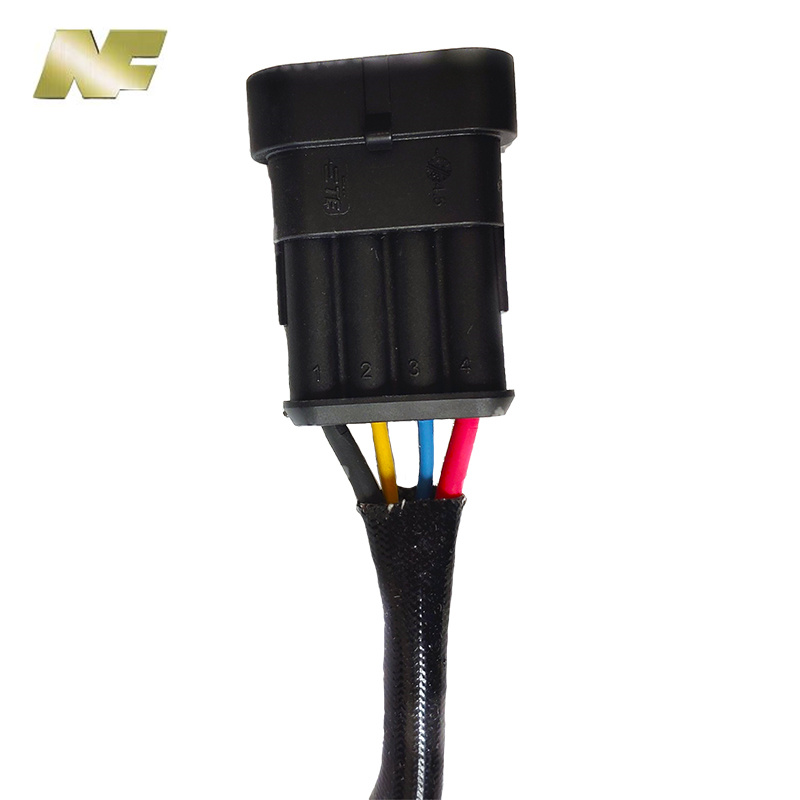
Advantage
*Brushless motor with long service life
*Low power consumption and high efficiency
*No water leakage in magnetic drive
*Easy to install
*Protection grade IP67
Description
The importance of the cooling system in a vehicle cannot be overstated. It plays a vital role in maintaining optimal operating temperature and preventing the engine from overheating. Traditionally, mechanical water pumps have been the solution of choice for cooling systems. However, the automotive industry is now witnessing a significant shift towards electric water pumps, with vehicle cooling DC pumps and automotive water pumps 24 VDC leading the way.
1. Disadvantages of mechanical water pump:
Mechanical water pumps have been the standard for decades, but they have their limitations. These pumps are driven by the engine and consume valuable horsepower and energy. Additionally, they operate at a constant speed, making it inefficient to maintain optimal cooling at different engine speeds. This can result in inefficient cooling during idle or cruising speeds.
2. Introduction to electric water pump:
An electric water pump, on the other hand, is powered by electricity and operates independently of the engine. This eliminates parasitic power losses and allows precise control of the pump. Vehicle cooling DC pumps and automotive water pumps 24 VDC are typical examples of electric water pumps, which offer several advantages over mechanical water pumps.
3. Improved efficiency and precise control:
One of the main advantages of electric water pumps is their ability to optimize cooling efficiency. By operating independently of the engine, they can be adjusted to provide the necessary flow and pressure, specifically tailored to each driving situation. This ensures the engine remains at optimal temperature, reducing wear and improving overall efficiency.
4. Flexibility in design and placement:
Electric water pumps provide engineers with the flexibility to design more compact, more efficient cooling systems. Compared to mechanical pumps, which are limited to a fixed location in the engine block, an electric water pump can be placed anywhere within the cooling system. This allows for more efficient coolant hose routing and better overall thermal management.
5. Intelligent cooling system management:
When combined with advanced electronic control units (ECUs), electric water pumps can be integrated into complex cooling system management algorithms. These algorithms monitor multiple engine parameters, such as temperature, load and speed, and adjust the water pump's performance accordingly. This intelligent control ensures that the engine is always operating within the optimal temperature range, improving fuel efficiency and reducing emissions.
6. Environmental benefits:
Electric water pumps help create a greener, more sustainable automotive industry. By reducing engine energy consumption and increasing efficiency, these pumps indirectly reduce emissions and fuel consumption. Additionally, electric water pumps can be paired with alternative energy sources such as hybrid or electric vehicles to further enhance their environmental benefits.
7. The road ahead:
The increasing adoption of electric water pumps in modern vehicles clearly demonstrates the industry’s commitment to innovation and efficiency. As technology continues to advance, we can expect more advanced water pump designs to improve performance and further reduce energy consumption.
in conclusion:
Vehicle Cooling DC Pumps, 24 Volt DC Automotive Water Pumps and other electric water pumps promise to revolutionize vehicle cooling systems. Their exceptional efficiency, precise control and design flexibility make them an indispensable component of modern vehicles. As automakers and consumers prioritize sustainability and efficiency, the rise of electric water pumps marks an important step forward in achieving these goals. As technology continues to advance, we can expect the road ahead to get brighter and cooler.
Application
It is mainly used for cooling the motors, controllers and other electrical appliances of new energy vehicles (hybrid electric vehicles and pure electric vehicles).

FAQ
1. What is a cooling system electric water pump?
Cooling system The electric water pump is the device responsible for circulating coolant through the engine cooling system to maintain its optimal operating temperature.
2. How does the cooling system electric water pump work?
The electric water pump is driven by an electric motor and controlled by the engine control unit. It uses an impeller to draw coolant from the radiator and circulate it through the engine block and cylinder head, dissipating heat and keeping the engine running efficiently.
3. What are the benefits of using an electric water pump in the cooling system?
Some of the advantages of electric water pumps for cooling systems compared to traditional mechanical water pumps include improved fuel efficiency, shorter warm-up time, reduced emissions, and better engine cooling performance.
4. Will the electric water pump of the cooling system malfunction?
Yes, like any other mechanical or electrical component, a cooling system electric water pump can fail over time. Common problems include motor failure, leaks, and impeller wear. Regular inspections and proper maintenance can help prevent premature failure.
5. How can I tell if my cooling system electric water pump is faulty?
Signs of a failing electric water pump in your cooling system include an overheated engine, coolant leaks, an illuminated check engine light, unusual noises from the pump, or a noticeable decrease in engine performance. Any of these symptoms should prompt you to see a qualified mechanic.
6. Can the mechanical water pump be replaced by an electric water pump?
In most cases, an electric water pump can be used instead of a mechanical water pump. However, careful consideration needs to be given to the vehicle's cooling system design and compatibility with electronic control systems. Consult a professional mechanic or refer to the manufacturer's guidelines for specific recommendations.
7. Is the cooling system electric water pump compatible with all types of vehicles?
Cooling system electric water pumps are compatible with all types of vehicles, including cars, trucks, SUVs, and motorcycles. However, specific compatibility may vary by make, model, year and engine configuration. Always check the manufacturer's specifications or consult a professional mechanic before purchasing.
8. Can I install the cooling system electric water pump myself?
While some hobbyists with mechanical expertise may be able to install a cooling system electric water pump on their own, installation by a professional mechanic is generally recommended. Proper installation is critical to ensuring the correct operation and overall safety of your vehicle.
9. Are electric water pumps for cooling systems energy efficient?
Yes, electric water pumps for cooling systems are generally more energy efficient than traditional mechanical water pumps. They are designed to better control and optimize coolant flow, resulting in greater fuel efficiency and lower energy consumption.
10. Does the electric water pump of the cooling system require regular maintenance?
Cooling system electric water pumps generally require minimal maintenance. However, the manufacturer's recommended maintenance intervals must be followed for inspection, coolant flushing and replacement when necessary. Regular inspections for leaks and unusual noises can also help identify potential problems early.

